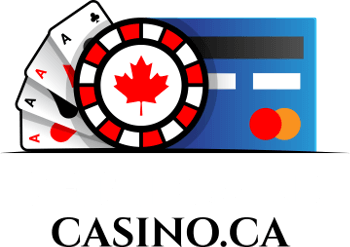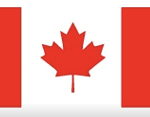How to Win Omaha Poker Against Average Players

How to Play Omaha Holdem w/o Losing Your Shirt
Omaha is not a game to enter into lightly, or without sufficient understanding of its derivative Texas Holdem. In postulating the variance, we aim to walk you through the steps of becoming a good, profiteering Omaha poker player. We’ll show you the ropes, teach you how to recognize opportunities, and offer some new-age weapons to stock your arsenal.
1. The Rules of Omaha Holdem PokerNo lesson of this nature can start without a basic assessment of the rules. But before we continue… As alluded to above (twice, in fact; now three times), you need to have a solid foundational understanding of Texas Holdem before you attempt the transition to Omaha. If you have not yet achieved, at the least, an above-average standing in that game, please take the time to do so. It will do wonders for your Omaha game. Bookmark this page, visit the following link, then return here at a later date. If you’re still reading, congratulations on your Texas Holdem expertise. Let’s get right to it… The only difference between these two games, (outwardly, that is), is the number of whole cards dealt to each player. Instead of just two, you will receive four hole cards. As the game progresses, five community cards are dealt – three in the Flop, one on the Turn, and one more on the River. These appear face up in the middle of the table between betting rounds, giving players a shared community card bank to complete all hands. Here’s the kicker… From these nine cards, you must use exactly 2 hole cards, combined with exactly 3 community cards, to develop your best 5-card poker hand. 2. The Underlying Difference Between Omaha and Texas HoldemIt’s easy to see how the rules differ, but the variance between these games goes so much deeper. Omaha poker requires a more dutiful strategem than its predecessor. Anyone with enough patience can beat Texas Holdem, and since the online poker boom of the early 2000s, countless players have. But Omaha is a different kind of beast. The hands that win Texas Holdem don’t win here. It’s the reason so many of the elite pros have turned to the Omaha tables. They no longer wish to compete in a realm flooded by equals. The majority of Omaha players are still wet behind the ears, making them easy prey for the big sharks. If you want to play this game with any degree of success, you need to understand it on a deeper level. Thus, we begin our lesson with… 3. Omaha Holdem Starting HandsIf you’re used to strict starting hands and liberal freedoms of Texas Holdem, this is going to take some getting used to. Those four cards can open a can of endless possibilities. Pocket Aces are great, but when your neighbor has pairs, suits, and connectors, chances are he’s going to blow your pair or flopped set right out of the water. The best starting hands are all going to be double-suited. That means two cards of one suit, two cards of another suit (i.e. two hearts and two spades). The Top 30 Double-Suited Starting Hands in Omaha poker are:
If these seem out of reasonable order to you, don’t feel bad. You’re not alone. On the surface, they don’t all seem to make sense. Why would KKQQ appear after JT98 when you can only use two hole cards? In the static world of mathematics and probabilities, a starting hand of JT98 is more likely to hit a favorable range of community cards and develop into a straight, than a KKQQ is of developing into anything better than three of a kind. 4. Winning Omaha Poker HandsThis is another area where we see a vast difference between Texas and Omaha Holdem. In the former, top pair – even middle pair – can be a good hand to play post-flop. These hands win at showdown more often than any other. Two pair, or a set, is considered high value. But in Omaha, the hands that win at showdown are most often straights and flushes. If you’re competing for (and betting on) anything less, you’re investing in a negative expectation. 5. The PLO FormatTexas Holdem is almost always played in a No Limit betting structure. To better control loss rates, some will play in Fixed Limit. But in Omaha, the standard is Pot Limit. It’s so unquestionably popular, the game has earned the nickname PLO, or Pot Limit Omaha. The pot limit betting structure is unique; a virtual melding of the FL and NL formats. Like FL, there is a strict cap on all bets and raises. Yet, like NL, these games can get very expensive. In PL games, the max bet/raise at any given time is equal to the size of the pot. It’s usually easier to explain/understand by example, so let’s start there. Example of a Pot Limit Omaha HandLet’s say the stakes are $1/$2 PLO. You’re under the gun (first to act, after big blind). There is already a small blind ($1) and big blind ($2) in the pot. By rules, the minimum bet is $2 (equal to big blind), and the max bet is $3 (current pot size). To call would require a $2 bet, since this is what the big blind has posted. But what if you want to raise? Before you can raise, you must first call the existing bet. So, you call first, adding $2 to the pot. This increases the pot to $5. Now, you are able to raise anywhere from $2 (the minimum) to $5 (the pot size). If you raise the max $5, the pot now contains $10. Now, the player after you also wants to take action on the pot. You’ve already called $2 and raised $5, so it will take a minimum of $7 for this player to call, thereby boosting the pot to a total of $17. After calling, this player can raise an additional $17. To do so would jump the pot to $34. As I said, PL games can get very expensive, very fast. They don’t normally grow so large, but it can happen, so you – and your bankroll – need to be prepared for it. 6. Practice, Practice, Practice!I’m not going to bother teaching you how to read other players, or how to mask your own poker face. Nor will I delve deep into expected values or bet sizing. These are all lessons that should have been acquired prior to your graduation form Texas Holdem. The truth is, if you’re capable of beating the average Texas Holdem player, all you should need is the above knowledge, combined with a great deal of practice, to make the successful transition to Omaha. There are a few areas in which you need to pay special attention during your practice. Most importantly, I suggest you pay special attention to the range of hands people are moving forward with, and the range of hands people are winning with. By observing a player’s hand range, and the way they bet on those ranges, you can get a feel for what they’re holding as the game progresses. This is extremely useful knowledge when the flop comes down, and you aren’t sure which one of you has the goods. Observing the types of hands that win most often – not just the 5-card poker hand rank that won, but the starting hand that resulted in that win – will help you generate a better awareness of hand value. We talked about the best starting hands above, but in Omaha, true understanding is something that comes with hours upon hours of mindful practice. 7. New Age Tips and TricksPoker is a centuries-old game, but the strategies used to beat it aren’t. The rules remain the same, but poker theory is constantly evolving. Those who fail to evolve with it may see short-term success, but they won’t stay on top for long. The following are some of our more recent articles dealing in new age poker strategies; everything from psychological warfare and meditation, to ergonomics and nootropics. Not all of these may fit into your repertoire, but I do encourage giving them all a read. Who knows? You may be surprised what works to improve your Omaha poker games.
|
|
Disclaimer – Not all forms of gambling are legal in all provinces of Canada. The legal age to gamble also varies by province. Breaking the law is a serious matter. The information provided on this website is meant for educational purposes only, and we will not be held liable for any irresponsible / illegal activity on your part. Know the gambling laws in your province and follow them. The following pages provide more information on Canadian gambling laws:
|
 Jackpotcity.com is our editorial pick for your gaming needs. Currently offering an entire suite of casino games, as well as a wide range of Canadian deposit options, JackPotCity truly offers world-class gaming.
Jackpotcity.com is our editorial pick for your gaming needs. Currently offering an entire suite of casino games, as well as a wide range of Canadian deposit options, JackPotCity truly offers world-class gaming.





